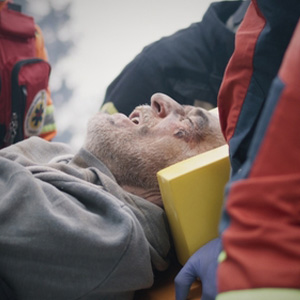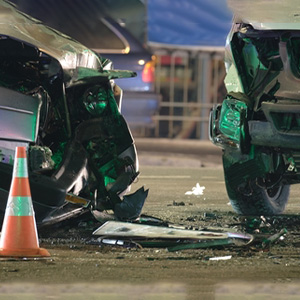
Chapter 7: From Injury To Stability Recovering from a catastrophic injury isn’t just about healing your body. It’s about rebuilding your life. And although fair compensation plays a major role in that process, it’s important to understand what fair really means. Fair compensation is one of those legal phrases that can sound abstract, but for someone living through a catastrophic injury, it has a very real meaning. At the most basic level, it means being able to cover your medical bills, both past and future. It means catching up financially after months or years of uncertainty. And it means having a safety net, that is, resources to support your continued care and give you stability if challenges arise again down the road. Money can’t take you back to who you were before the injury. It can’t undo the pain or restore lost time. But it…Read More

Chapter 5: Understanding The Different Types Of Compensation When someone suffers a catastrophic injury, understanding the types of compensation available can make all the difference in maximizing their personal injury case value. Once liability is clear, the next question becomes: what is this case worth? There are two main categories of damages: economic and non-economic. Economic Damages Economic damages are the financial losses that can be clearly measured. These include medical expenses—both past and future—as well as lost wages, diminished earning capacity, and out-of-pocket costs like transportation to medical appointments. These are numbers that can be documented through bills, receipts, or pay stubs. For example, if a person has already incurred medical bills or will need ongoing treatment in the future, those costs become part of the total recovery. Similarly, if the injury prevents someone from working temporarily or permanently, their lost income and future…Read More

Chapter 3: Staying The Course In Recovery The Importance Of Keeping Up With Medical Treatment If you don’t stick to your recovery plan after a serious wreck, you’re not doing your body any favors. You’re not doing your case any favors, either. One thing that insurance companies love to point out and use against you is gaps in your medical treatment. To them, it doesn’t matter what else you have going on in your life. It doesn’t matter to them if you have work, kids who need to be picked up, or other responsibilities. To them, if you’re missing appointments, it means you’re not really hurt. Having gaps in treatment gives them another arrow in their quiver that they will not be shy about using. The other thing to consider is that once you close your case (either through a settlement or a jury verdict),…Read More

Chapter 1: More Than A Fender Bender How A Seemingly Minor Injury Can Be Life-Altering It’s not uncommon to experience soreness immediately after an auto wreck. But you’re not a neurosurgeon, and you won’t know exactly what is wrong. So, you take an Advil or two, and carry on. But after the adrenaline wears off, after you start taking stock of how the incident has changed you, you may head in for an appointment that gives you startling news. What does this look like? I’ve seen clients dismiss their post-incident pain, refuse transportation to the hospital, see their doctor once, and never follow up on anything. Three months later, they learn they need neck surgery. A seemingly minor injury has ultimately been life-changing. The reality is, after a serious car wreck, you don’t know what you don’t know. And the more damaging the car wreck…Read More

In this article, you will discover: Why California insurance companies pressure you to settle quickly after a crash. The risk of settling a personal injury claim before you are fully evaluated. Future medical or rehabilitation damages you’ll miss if you settle too quickly. Why Do Insurance Companies Pressure Victims To Settle Quickly After A Crash? Insurance adjusters have quotas, and their performance reviews track how quickly they can close claims. Specifically, their superiors evaluate how many claims or “exposures” they close monthly. For that reason, they are incentivized to close them as quickly as possible. Even if the adjuster handling your claim isn't writing you that check from their bank account, they're still motivated to minimize exposure to their company. What Are The Risks Of Settling Before My Injuries Are Fully Evaluated? The most significant risk is that you could be left holding the bag.…Read More

Is Accepting A Quick Settlement After A California Car Wreck Always Better Than Going To Trial? There’s no one-size-fits-all answer here. Some cases are better resolved through settlement; others may require trial to get full justice. It depends on the specific facts of your case: your injuries, the strength of the evidence, the offer on the table, and the risks and costs of going to court. An experienced personal injury attorney will help you weigh all those factors and make an informed decision step by step. The key is to avoid rushing into anything without understanding the long-term impact. Do I Need To Report A Minor Car Incident In California? What’s considered minor varies quite a bit. A small fender bender with no injuries and damage below your deductible likely won’t require legal help or formal reporting. But even in these situations, you should still…Read More

In this article, you will discover: Whether you can be reimbursed for co-pays and prescriptions after a California car wreck. Documentation needed to prove out-of-pocket expenses in a California car wreck. Whether lost wages are an out-of-pocket expense in a California car wreck. Are Medical Co-Pays And Prescriptions Reimbursable In California? Out-of-pocket medical costs are part of the special damages you can recover in an auto wreck case. Special damages refer to past, present and future medical bills you incur as a direct result of your injuries. If you are treated through your health insurance, you'll have a co-pay or a deductible. In an auto wreck case, the amount you pay out-of-pocket is fully recoverable. Can I Be Reimbursed For Transportation To Medical Appointments After A Car Wreck? Transportation expenses are fully recoverable in a California personal injury action, provided they are substantiated. You must…Read More

In this article, you will discover: How fault is determined in a Los Angeles pedestrian injury. Whether a pedestrian can be partially at fault and still recover compensation. How damages are calculated in a Los Angeles pedestrian injury claim. How Is Fault Is Determined Under Los Angeles Pedestrian Injury Laws? The notion that a pedestrian always has the right of way isn't entirely correct. However, as a pedestrian, you do have more leeway with the rules of the road than you would if you were in a car. As a pedestrian, you're not allowed to jaywalk. Still, if you're jaywalking and a vehicle hits you, that doesn't necessarily mean you're at fault. There are several avenues for pedestrians to obtain compensation for their injuries, even if they violate the laws governing pedestrian crossings. Even if you break the law by jaywalking, the other driver might…Read More

In this article, you can discover… Whether you need uninsured motorist coverage in California. Whether passengers are covered by a driver’s uninsured motorist coverage. How to seek compensation when hit by an uninsured motorist, and how an attorney can help. What Are California's Legal Requirements For Uninsured Motorist Coverage? Insurance companies are required to offer you uninsured/underinsured motorist coverage up to the limits of your liability coverage. However, as with any contract, you can make changes and either reduce the uninsured/underinsured motorist coverage below your liability limits or remove that coverage entirely. In California, if you elect to remove uninsured/underinsured motorist coverage from your policy, it must be accompanied by a waiver agreement you sign separately from your policy. This requirement exists because uninsured and underinsured motorist coverage is a crucial component of your overall coverage. If you remove that coverage, you may not be…Read More

How Does Failing To Report A Car Incident To The Police Impact My Personal Injury Claim In California? In California, especially after the pandemic, it’s become increasingly common for local police departments to not respond to traffic incidents on surface streets even when those involved suffer injuries. However, the California Highway Patrol (CHP) is different. If you’re involved in a crash on a highway, always contact CHP. They will typically respond and create a thorough report. Even if you’re on a surface street, it’s still a good idea to call the police. Even if they don’t write a report, having them present can help with the exchange of information names, insurance details, witness info which will be critical for your case later. If there’s no police report, that’s not the end of your claim, but it may make things more challenging. How Can Social Media…Read More